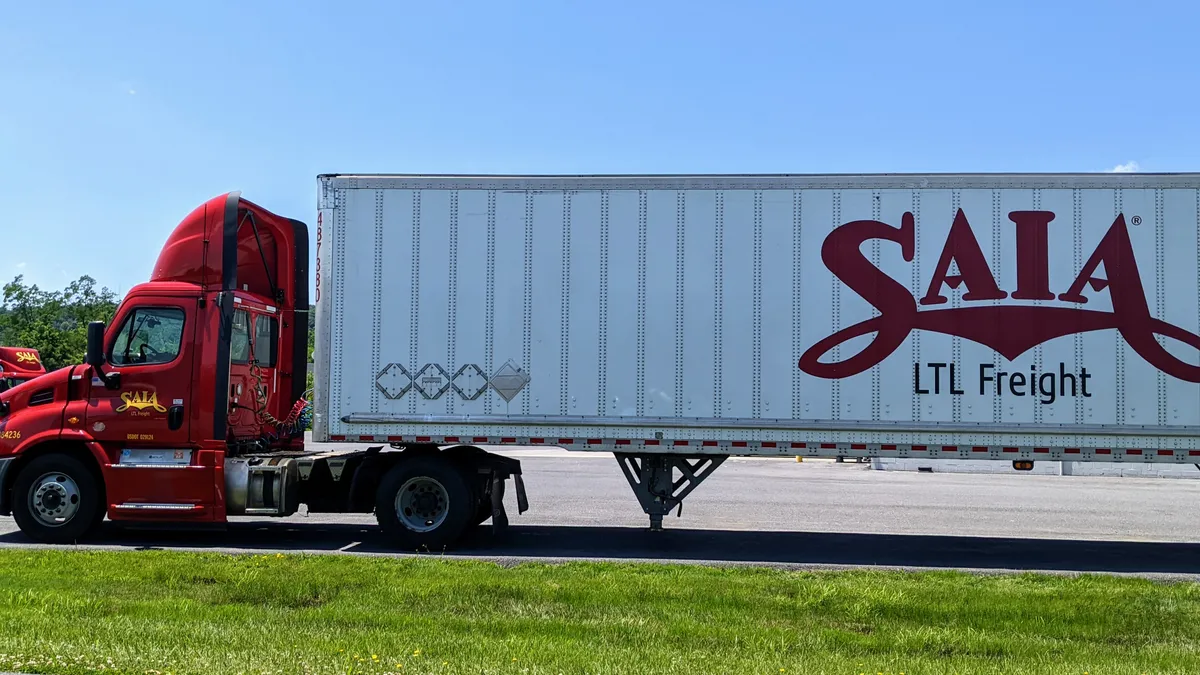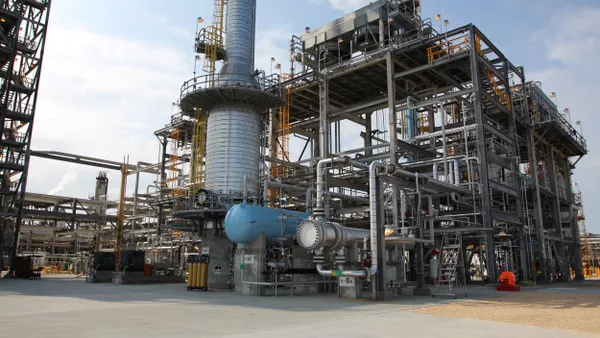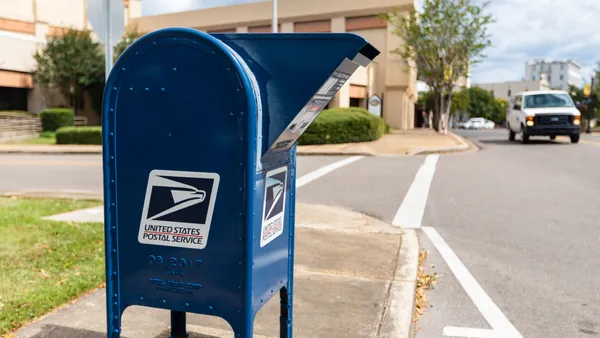Dive Brief:
- Eighty percent of owner-operators and small fleets did not have a continuity plan in place as the COVID-19 pandemic struck, Rebecca Brewster, president and COO of the American Transportation Research Institute (ATRI), said Wednesday during a webinar. ATRI surveyed 5,000 fleets and trucking businesses during the pandemic and gathered an abundance of data, she sad.
- The webinar panel discussed changes in the "long haul" that the pandemic has likely brought to trucking permanently. Changes executed "on a dime" could be here to stay, said Mark Walker, chairman and CEO of TransLand. Remote working will allow more flexibility for office workers, he said.
- One of the greatest productivity gains has been moving orientation online, said Walker. Orientation had taken 3.5 days, but now takes 1.5 days. A number of messages from departments have been moved to videos. But there is still an opportunity for in-office human interaction, he said.
Dive Insight:
As the business closures caused by the pandemic wind down, fleet owners and managers are weighing which changes to keep and which to shed — even though adjustments to their office settings were implemented recently.
One change Walker mentioned was moving orientation, training and recruiting online. Transland has found success in digital tools. In two weeks, TransLand went from having only on-call workers available to work from home to being able to employ 100% of its office workers at home.
Some fleets have announced they have moved all orientation and training online, as Hirschbach did on April 1. Also in April, U.S. Xpress told Transport Dive it had moved some of its training online. There has been growing acceptance of tech tools and devices for processes once thought to be too in need of human oversight.
For the sake of social distancing, fleets are looking to cut down on the interactions that truckers, office workers and warehouse employees need to have. There will be a more paperless process, said Jackie Giefer, director of operations for Bay and Bay Transportation, with more electronic billing and signature-gathering.
But a traditional way of business in management and trucking-sector that must come back is contact — with people, in person. Walker said a growing and impersonal transactional model could threaten trucking's historic reliance on relationships with customers.
Brewster said the ways trucking officials interact in person and at events will have to be re-examined.
"We are going to have revisit how we do that going forward," said Brewster. "We still have to have those interactions but mitigate the risk from them."
Brewster said the industry has proven remarkably sustainable during the pandemic and the shutdowns. But Walker said he was concerned about a possible slowdown in recruiting and training drivers, which could mean companies poach employees during a time of driver shortages.
"That is the lifeblood, that is the real pipeline," said Walker. "Trading drivers from one company to another is a zero-sum game. We've got to get out of that business, and get into the business of being more people into the industry."
Industry officials consider the driver shortage the top concern. The shortage has made ATRI's No. 1 concern for three years in a row, in the organization's survey of drivers and managers.










